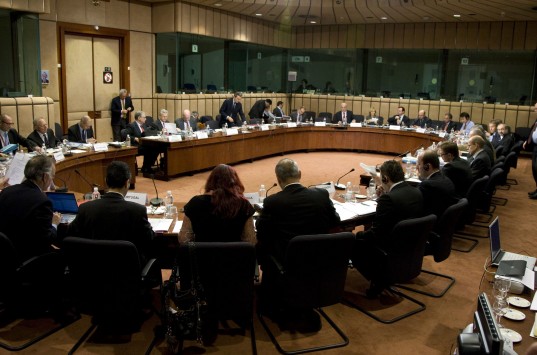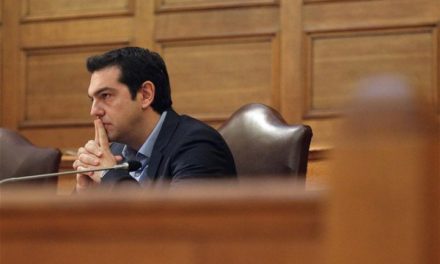Euro-area finance ministers expressed doubts about Greece’s plan to exit its rescue program early, highlighting a clash between Greek political priorities and European economic preferences.
“We are skeptical about this,” Austrian Finance Minister Hans Joerg Schelling told reporters today in Luxembourg before a meeting with his euro-area counterparts. “We are watching this with a certain skepticism and concern.”
Greek Prime Minister Antonis Samaras wants to sever the 240 billion-euro ($304 billion) lifeline that has kept the country afloat since 2010 by forgoing emergency international loans next year and in 2016.
Doing so would ease fiscal oversight of Greece by the euro area and International Monetary Fund, which finance the country’s rescue in exchange for unpopular budget cuts that have deepened a six-year Greek recession. The step could also bolster Samaras’s goal of avoiding early elections that polls indicate would be won by the main opposition party, which has lashed out at the belt-tightening conditions of the bailout.
Four years after triggering the European debt crisis, Greece aims to join Ireland, Spain and Portugal in emerging from aid programs and to leave Cyprus as the last bailout victim. The size of the Greek rescue — around half of all the bailout funds committed for the five countries — and persistent difficulties in getting authorities in Athens to comply with the terms have made the euro area and IMF wary of cutting Greece loose.
Market Return
The Samaras government is building a case to cut off financial support at the end of the year on the basis of an improvement in Greek public finances, low interest rates and the country’s return to bond markets in April after a four-year exile.
Greek sovereign bonds remain the best-performing securities in the Bloomberg indexes this year, having earned more than 21 percent through today. The yield on 10-year debt rose 12 basis points to 6.72 percent at 6:02 p.m. in Athens today.
As part of their campaign, Greek officials including Finance Minister Gikas Hardouvelis conferred over the weekend with IMF Managing Director Christine Lagarde in Washington on steps ahead for the country.
Samaras said last week that he was “fully comfortable” pushing to end aid by year-end. In a bid to ease the concerns of the euro area and IMF, he also said the government was prepared to negotiate a role for them in overseeing the Greek economy beyond 2014.
Dutch Finance Minister Jeroen Dijsselbloem said today that Greece has yet to fulfill all the commitments under this year’s part of the rescue and that a precautionary credit line for the country as of 2015 is a possibility.
“There are quite a number of commitments the Greeks need to fulfill in the program,” Dijsselbloem told reporters in Luxembourg. “So there is work to be done.”



















